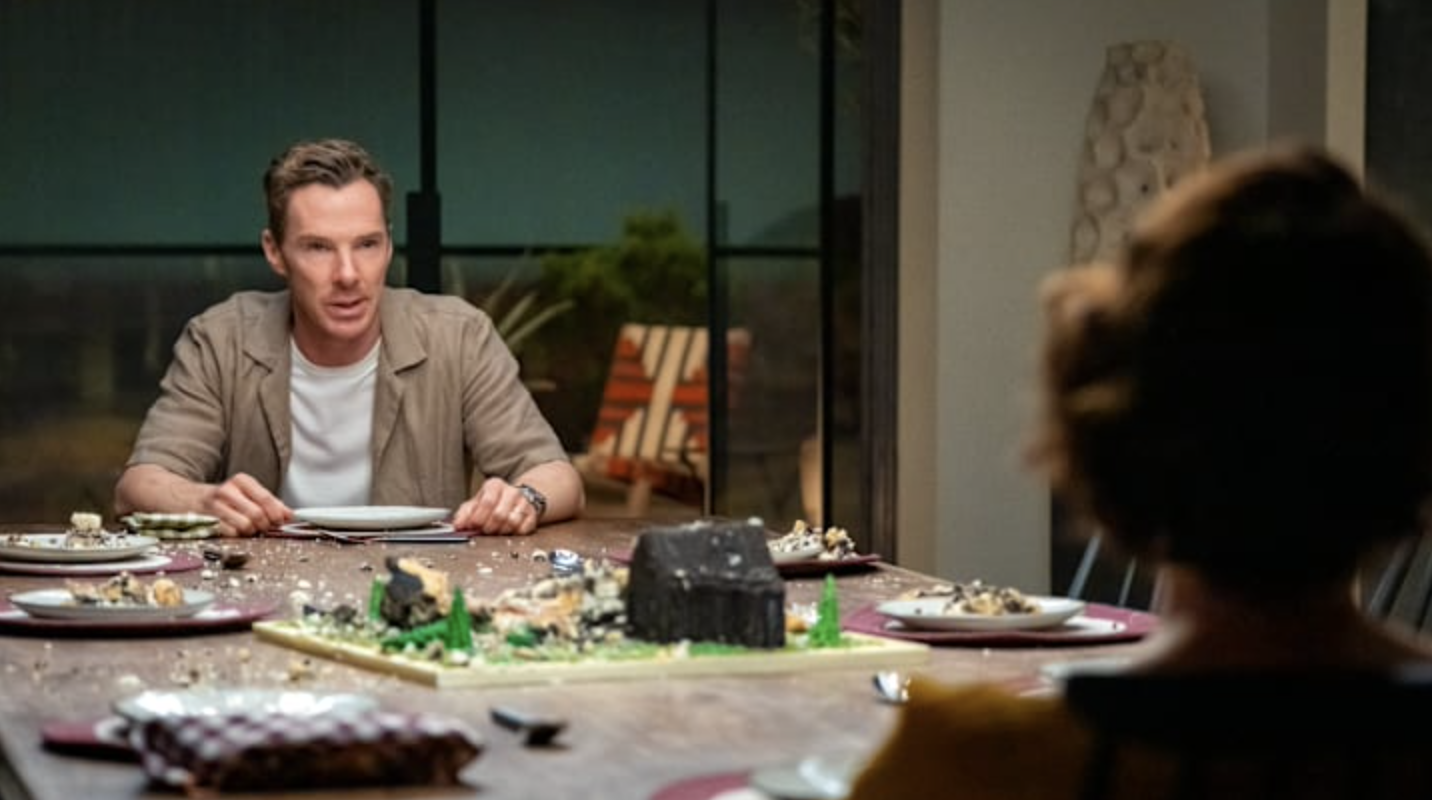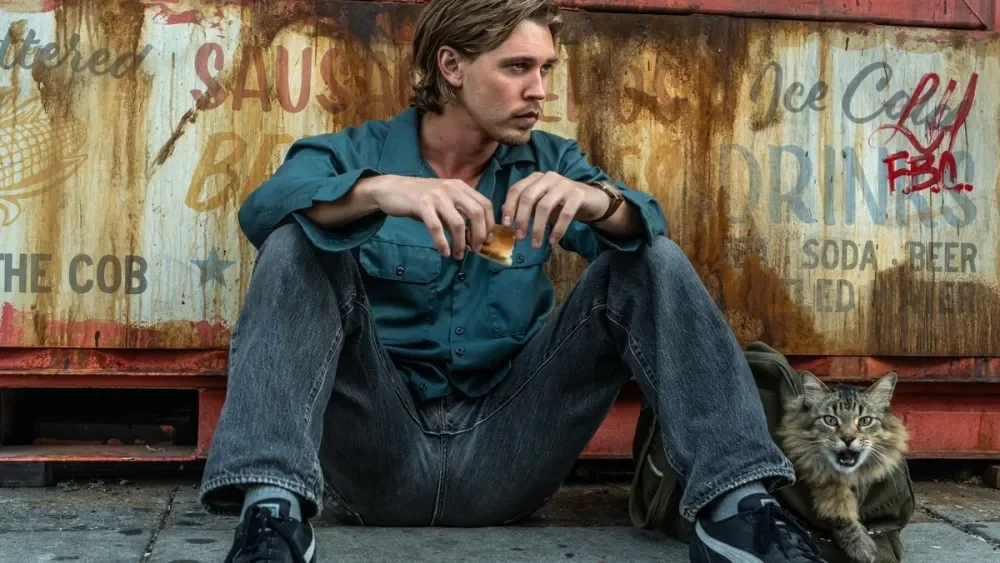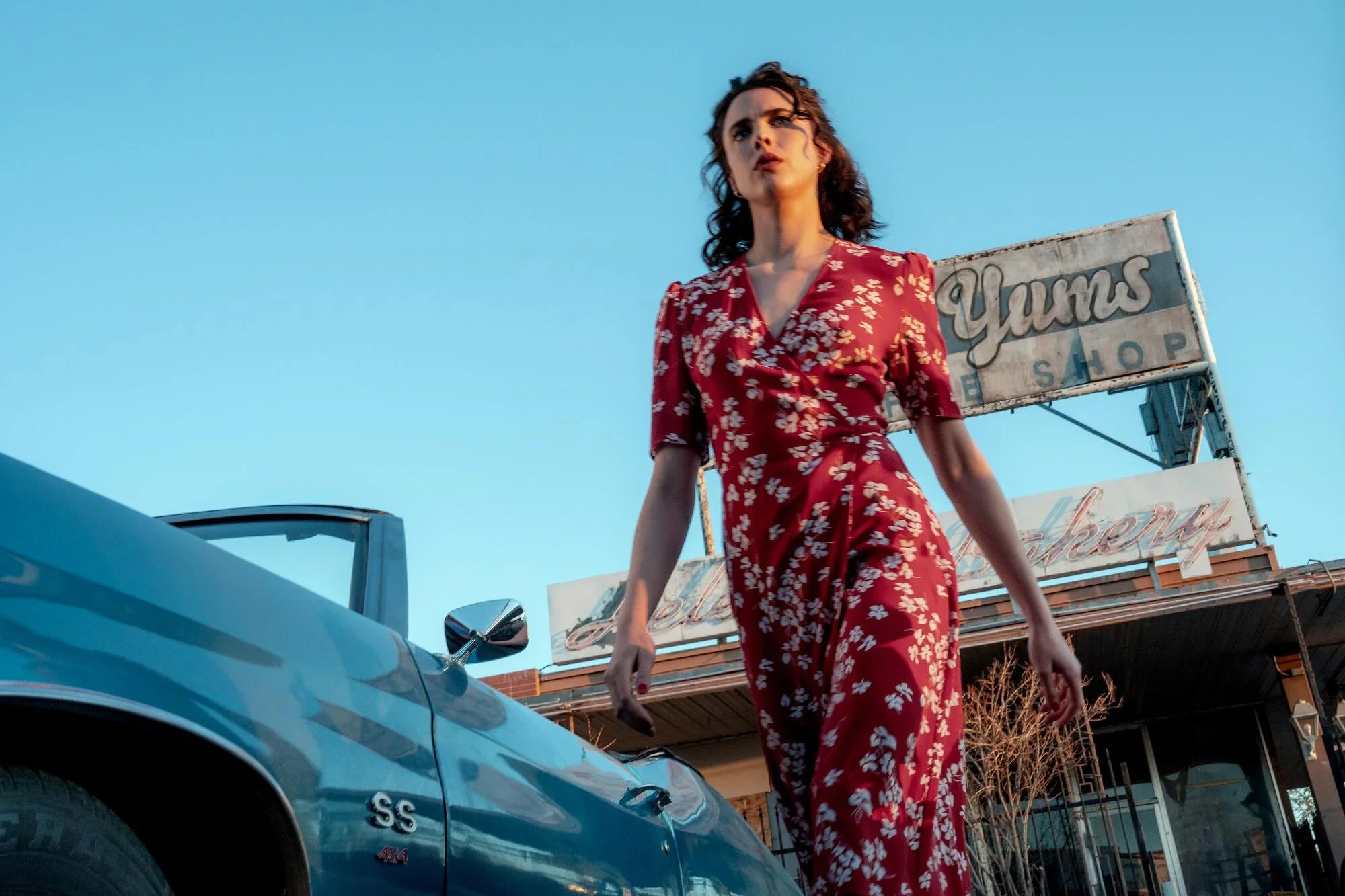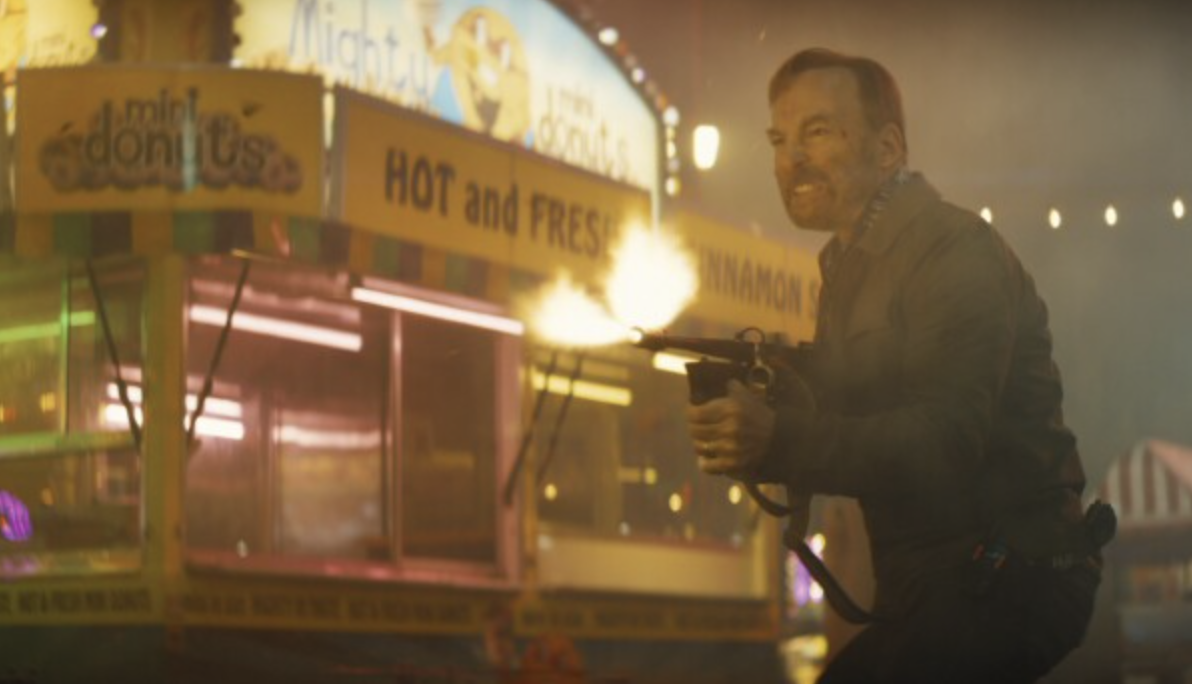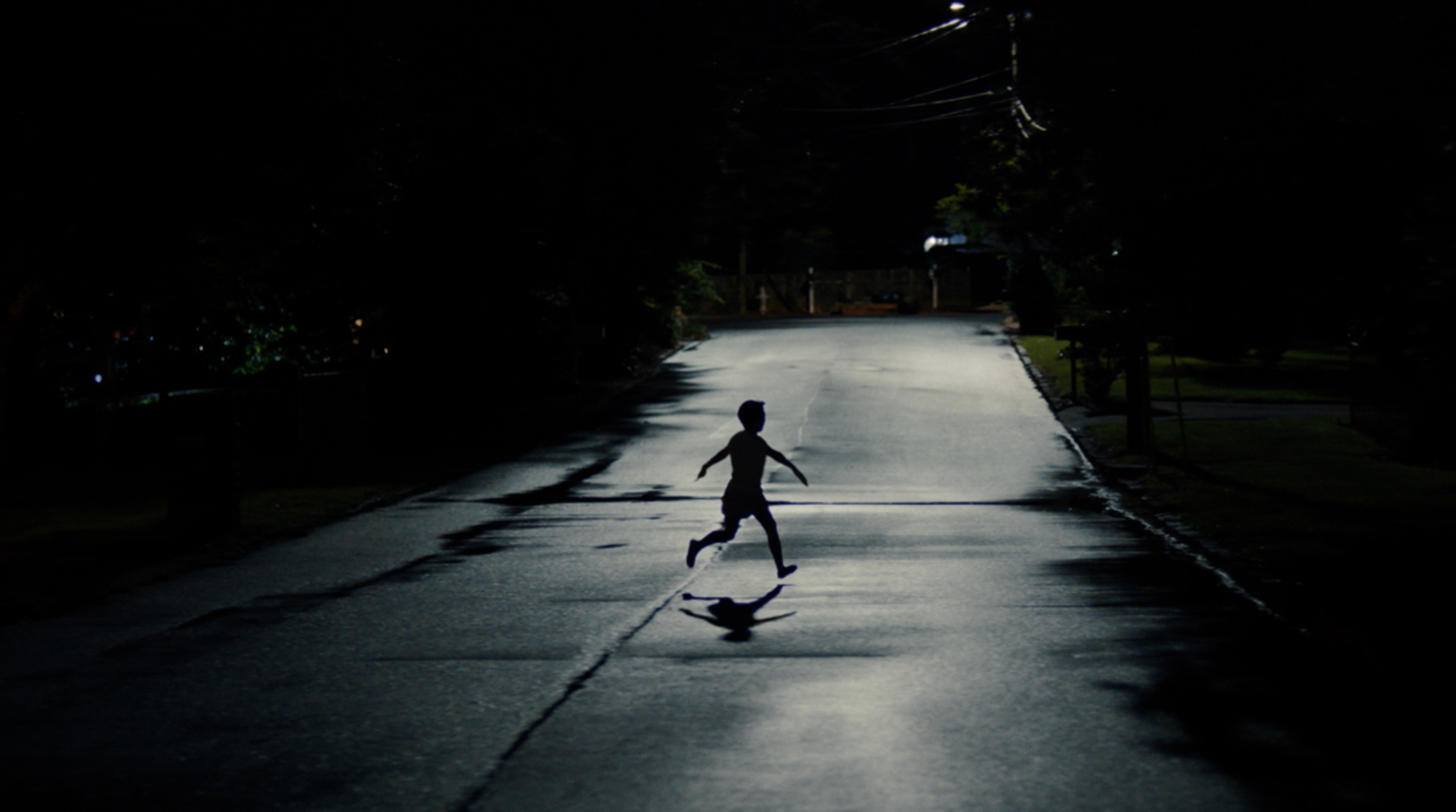THE ROSES
Directing: B-
Acting: B+
Writing: B-
Cinematography: B
Editing: B-
The Roses starts out strong, with a lot of promise, and then it kind of . . . peters out. The whole point of this movie is to be entertained by a warring couple who let things get out of hand in a divorce, and ironically, the flashback scene of when they first met is possibly the most entertaining in the movie. It certainly establishes Olivia Colman and Benedict Cumberbatch as having undeniable chemistry, as Ivy and Theo Rose.
And then, The Roses takes way too long to get on with what we came to this movie for. The runtime is 105 minutes, and it’s not until well into the second half that we even see this couple truly start to sour on each other.
I get what director Jay Roach and writer Tony McNamara are trying to do, I guess. They do a fairly impressive job of presenting characters who are both empathetic in their own ways. I’m just not convinced it needed to take well over half the movie to get there. The poster goes out of its way to note that this movie is “from the director of Meet the Parents and the writer of Poor Things,” apparently to underscore one movie that was far more successful than this one has any hope to be, and another one that had far greater depth and wit and humor.
As it happens, The Roses is based on a 1981 novel called The War of the Roses by Warren Adler—which the 1989 film The War of the Roses, starring Michael Douglas and Kathleen Turner, was also based on. Crediting both films as simply based on the novel saves this new one, on a bit of a technicality, from being considered a “remake”—it’s simply another adaptation. The first film, directed by Danny DeVito, was a much more pointedly dark comedy and therefore much more my jam; I enjoyed The Roses okay but would be much more inclined to recommend you simply seek out The War of the Roses from 1989 and watch that.
In the first film, the couple is a lot less verbally vicious, and the focus is more on their curdling resentments that evolve into sabotage and comic violence. This new The Roses spends so much time on the success of the first ten years of the Roses’ marriage that I became convinced it would not end on the same comic but deeply dark note the first film ended on. I won’t spoil the ending here, but I will say this: it surprised me, but also managed to be somewhat ambiguous in a way that allows the movie to have its cake and eat it too. I left the theater saying I prefer that movies have more balls than this.
Theo Rose is a successful architect and Ivy Rose runs a local seafood restaurant too far off the main road to be successful—plus she’s called it “We’ve Got Crabs,” one of this movie’s attempts at wit that doesn’t quite land. Theo loses his job after a signature building he designed, with a structure atop it meant to evoke a sail, collapses in the middle of a freak rainstorm. I should ask my architect friend how plausible this scenario is, because I found it hard to believe—but, the sequence itself has its share of both effective humor and thrill to it. The humor then gets undercut by the amount of time Theo spends afterward obsessing over the video that gets re-edited to music and then goes viral, a plot detail now wildly overused.
On the same night, the main road closed, a bunch of drivers are diverted to We’ve Got Crabs, and this includes a local food critic who reviews the restaurant. The review is so glowing that by the next day the restaurant is overwhelmed with customers, and within weeks Ivy is being flown to San Francisco to hang out with famous chefs.
This is where things turn for the Roses: Ivy becomes the great success and the publicly disgraced Theo can’t get work. Breadwinning and parental roles are swapped, and differing opinions about parenting are a big part of brewing tensions. Although I will say, for the record, I’m with Ivy on this one: kids should be allowed to have fun—the clarifier here is that there should be moderation in all things, and Ivy just wants to be the “fun parent” and Theo is excessively regimented with the kids. Speaking of which, while Ivy and Theo are relatively well-rounded characters, their relationship with the two kids is never fleshed out in a satisfactory way. Having them move to the other coast in Miami on a fitness scholarship at the age of thirteen is a little weird. As is both kids’ all-in subscription to their dad’s fitness obsession.
This does, however, get the kids out of the way so that we can get to the Roses’ climactic battle—but not before they meet with Ivy’s lawyer, played by Allison Janney, yet another thing The Roses takes too long to get to, because as always Janney is great. Theo hires neighbor friend Barry (Andy Samberg) as his lawyer, and the running gag of Barry’s wife Amy coming on to a reliably disinterested Theo never quite works either. Amy is played by a game and entertaining Kate McKinnon, but given Theo’s lack of interest, Amy just comes across as inexplicably oversexed and it never really works, even feels like it fits with the rest of the movie.
Instead of peppering the entertaining battles through the movie, The Roses builds up to a climactic battle between the two leads. There’s a sort of montage of one-upmanship, including a dinner party that I hoped to get more out of, until a final blowout between Ivy and Theo in the house—which Theo designed and built, but Ivy paid for, thus being the one thing each of them refuses to give up. This sequence is pretty entertaining, until it becomes almost cartoonish (in what world would a woman who works as a chef “learn AI” and create a deep-fake video in one evening?). I do like how the falling living room chandelier is a nod to the first The War of the Roses from 1989. But, the 1989 sequence is far better, and any nods in this movie are just gestures to things already done better. You might as well just go watch the other movie instead.
Theo and Ivy make a mess of things in The Roses.
Overall: B-

